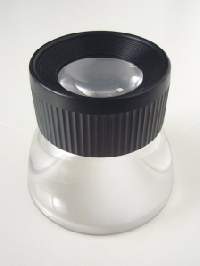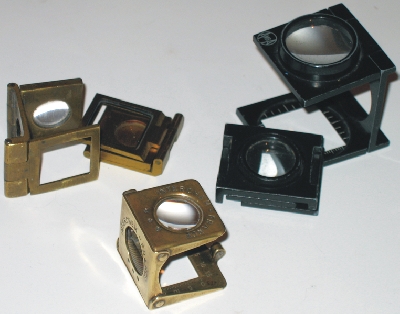 A Loupe (pronounced loop) is a small magnifying glass used by printers for a number of reasons. Offset printers use them to analyse how ink lies on paper. They are also used for registering film separations to one another. Other uses include checking registration of colours, estimating dot-gain, and diagnosing problems with roller pressure and chemistry based on the shape of individual dots and rosettes. A loupe is also used by designers when they’re checking a print mockup before giving go-ahead for print. This is the same type of magnifying glass that jewellers use to examine gemstones.
A Loupe (pronounced loop) is a small magnifying glass used by printers for a number of reasons. Offset printers use them to analyse how ink lies on paper. They are also used for registering film separations to one another. Other uses include checking registration of colours, estimating dot-gain, and diagnosing problems with roller pressure and chemistry based on the shape of individual dots and rosettes. A loupe is also used by designers when they’re checking a print mockup before giving go-ahead for print. This is the same type of magnifying glass that jewellers use to examine gemstones.
Unlike a magnifying glass, a loupe does not have an attached handle, and its lens(es) are contained in a cylinder or fold into a housing that protects the lenses when not in use. Loupes are also called hand lenses. The most common type of loupe used by printers are foldable loupes, otherwise known as linen loupes.
With the rapid progress in technology, the need for loupes might soon become something of the past as printing accuracy becomes more computerised.
 image: wikimedia
image: wikimedia
